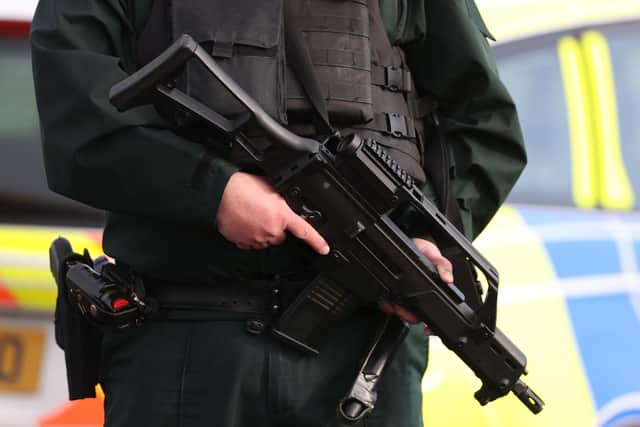MI5 raises Northern Ireland terror threat level from 'substantial' to 'severe'
Northern Ireland secretary Chris Heaton-Harris cited a "small number" of individuals who remain determined to use "politically motivated violence".
Announcing the change on Tuesday, he urged the public to "remain vigilant", but "not be alarmed".
Advertisement
Hide AdAdvertisement
Hide AdThe move comes after a series of incidents targeting security forces in Northern Ireland, including the attempted murder of Detective Chief Inspector John Caldwell in Omagh last month.


The threat level for the rest of the UK remains at "substantial", meaning an attack is considered "likely".
Northern Ireland's level had been lowered to substantial a year ago – the first time it had been altered since 2010.
Sinn Fein Stormont leader Michelle O'Neill said there was no place or space for paramilitary groups in a modern, democratic society, adding: "They must go."
She tweeted: "Today's announcement that the level of threat has been increased comes against the backdrop of the 25th anniversary of the signing of the Good Friday Agreement.
"A quarter century on there is no place or space for paramilitary groups in a modern, democratic society. They must go."
DUP leader Sir Jeffrey Donaldson said it was bad news for Northern Ireland and urged government to fund more police officers in the region.
SDLP leader Colum Eastwood also condemned paramilitaries and called for all to commit to "vocally and publicly to supporting the efforts of the PSNI to disrupt and dismantle these groups".
Advertisement
Hide AdAdvertisement
Hide AdIn a written statement to MPs, Mr Heaton-Harris said MI5 had increased the threat level to the region from Northern Ireland-related terrorism independently of ministers.
"The public should remain vigilant, but not be alarmed, and continue to report any concerns they have to the Police Service of Northern Ireland," he said.
He said despite the success of the Good Friday Agreement "a small number of people remain determined to cause harm to our communities through acts of politically motivated violence".
"In recent months, we have seen an increase in levels of activity relating to Northern Ireland related terrorism, which has targeted police officers serving their communities and also put at risk the lives of children and other members of the public,” he said.
"These attacks have no support, as demonstrated by the reaction to the abhorrent attempted murder of DCI Caldwell."
Sir Jeffrey said the Police Service of Northern Ireland (PSNI) needed additional funding to ensure it had capacity to meet the threat.
"It is bad news for Northern Ireland when the risk of further attacks moves to 'likely' or 'very likely'," he said.
"I look forward to a day when the threat level is removed, but to get there the community must stand with the police and demonstrate there is no space for terrorism in Northern Ireland in 2023.
Advertisement
Hide AdAdvertisement
Hide Ad"The Government made a commitment to help fund 7,500 officers in the PSNI, but have not yet made good on that promise.
Simon Byrne, Chief Constable of the Police Service of Northern Ireland, said: “We will relentlessly pursue those who seek to cause harm and terrorise our communities, and attack my officers and staff, and I pay tribute to them as they continue to deliver for our communities.”